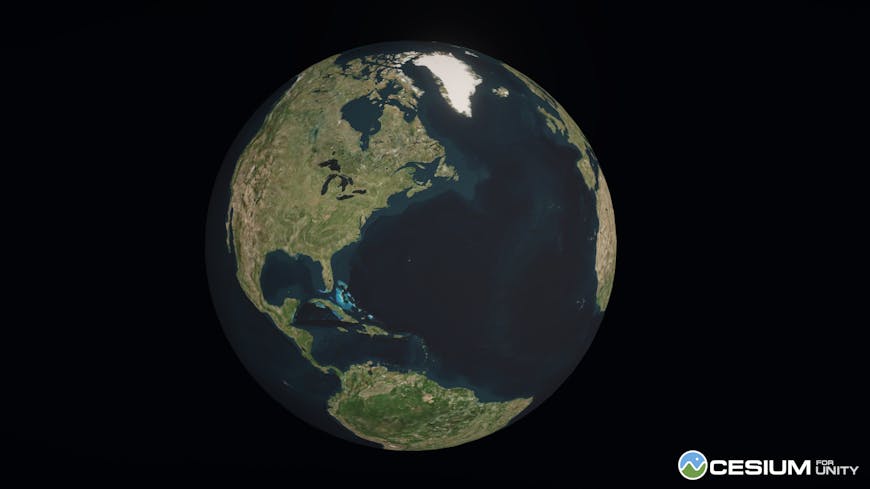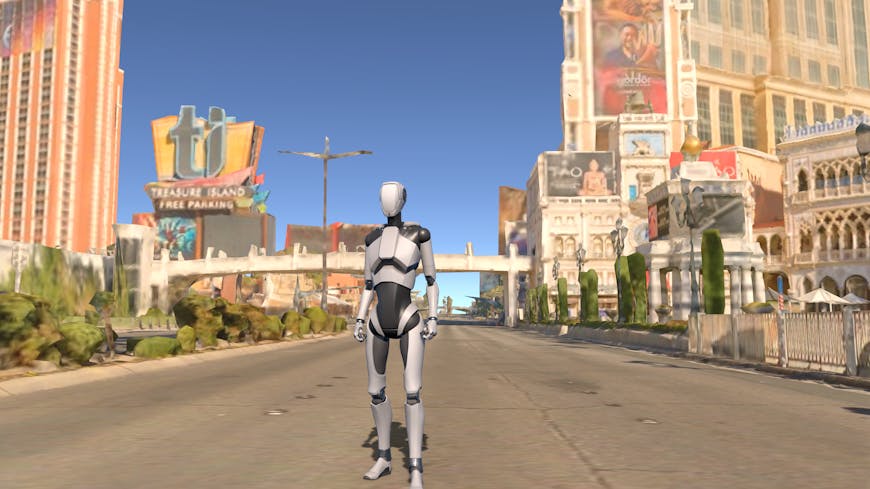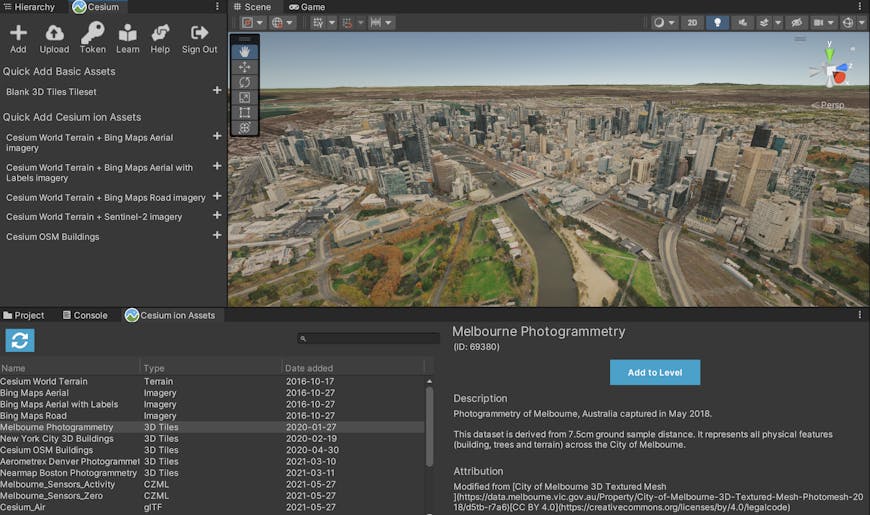Announcing Cesium for Unity
We are excited to announce that Cesium for Unity is now available as a preview. Cesium for Unity combines the 3D geospatial streaming capability of Cesium, 3D Tiles, and the robust foundations of Cesium Native with the Unity ecosystem.
The plugin is free and open source under the Apache 2.0 License.
Cesium for Unity includes:
- A full-scale, high-accuracy WGS84 globe for Unity, allowing Unity developers to create rich, immersive global apps, simulations, and experiences using 3D Tiles.

- A runtime 3D Tiles engine, including support for 3D Tiles Next, complete with level-of-detail selection and caching, to stream massive high-resolution 3D geospatial datasets, including global terrain, imagery, 3D cities, and photogrammetry, from the cloud, a private network, or the local machine. It also includes support for semantically rich 3D Tiles metadata with the ability to query the metadata at runtime. Cesium pioneered the 3D Tiles specification for global scale streaming of heterogeneous 3D data, and we’re excited to bring it to the Unity ecosystem.

Las Vegas visualized in Cesium for Unity. Data courtesy of Aerometrex.
- Integration with Unity’s Game Objects, Components, Character Controllers, and more, enabling you to either explore the world with a free camera or build controllable assets with physics and collisions that interact with the world.
- Integration with Cesium ion cloud services for quick and easy access to curated 3D geospatial content and 3D tiling pipelines for your data. As part of Cesium ion, users get access to global terrain, imagery, buildings, and photogrammetry datasets, with easy one-click access using the built-in Cesium ion UI in Unity Editor.

The Cesium ion UI in Cesium for Unity
- Support for multiple platforms including Windows, macOS, Android, and VR platforms such as Quest 2 and Quest Pro, with support for more platforms coming soon.
Cesium for Unity is the 3rd runtime engine integration built on Cesium Native, a single, engine-agnostic, reusable layer for 3D Tiles and 3D geospatial use cases in the metaverse. Cesium Native also powers Cesium’s integrations with Unreal Engine and O3DE, providing a stable, robust, scalable, and performant foundation for building geospatial integrations with runtime engines. Using Cesium Native enables Cesium for Unity to take advantage of many recent additions, including 3D Tiles Next with semantic metadata and feature picking, physics, collisions, character controllers, and support for mobile platforms and VR.
.png?auto=compress%2Cformat&w=870)
San Francisco in Cesium for Unity, courtesy of Aerometrex - data now available on the Cesium ion Asset Depot for use in your applications.
Like Cesium for Unreal, Cesium for Unity follows an open-core business model, with the visualization plugin being free and open source to all, with optional 3D content, content pipelines, and tools in the cloud or on-premises available commercially through Cesium ion.
Cesium for Unity will support both cloud and private network content and services based on open standards and APIs. With the recent launch of Cesium ion Archives and Exports, you can also download your assets for offline use in Unity.
We’re excited for you to try Cesium for Unity. Get started by downloading the Cesium for Unity Samples.